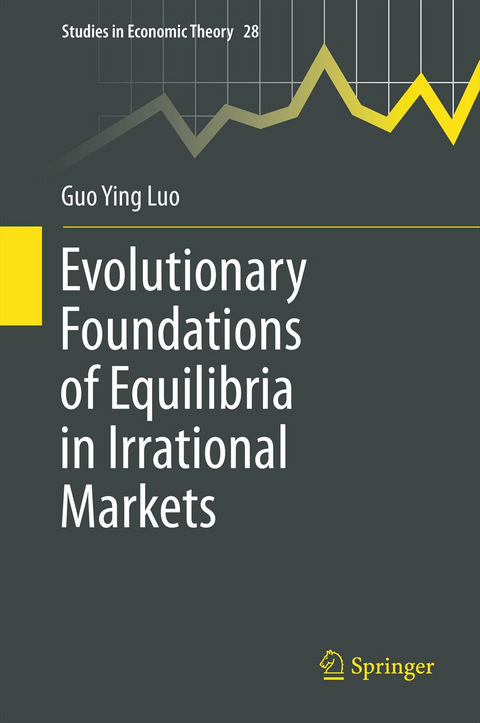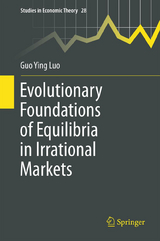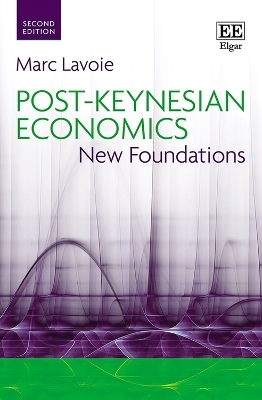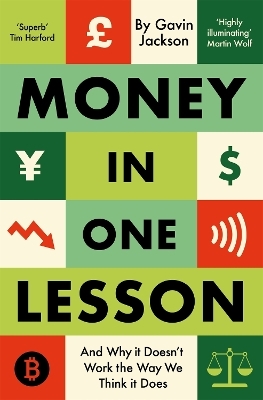Evolutionary Foundations of Equilibria in Irrational Markets
Seiten
2011
Springer-Verlag New York Inc.
978-1-4614-0711-9 (ISBN)
Springer-Verlag New York Inc.
978-1-4614-0711-9 (ISBN)
One of the core building blocks of traditional economic theory is the concept of equilibrium, a state of the world in which economic forces are balanced and in the absence of external influences the values of economic variables remain static. Many traditional equilibrium models, or equilibria, are established based on the rational behavior of individuals within financial markets, such as traders, market analysts, and investing firms, and their ability to maximize profits, no matter the cost. Yet what happens when these market participants behave in an irrational manner, and how does this impact economic equilibria? Contemporary economists have agreed that a process similar to Darwin’s Theory of Natural Selection takes over, whereby equilibria are shaped not by the behavior of individual participants but by an environment outside its control (i.e., an environment with little concern for maximizing profits). It is an environment in which those “selected” produce positive financial gains, but have no regard for how it was obtained or underlying motivations—and those participants suffering losses disappear altogether.
Evolutionary Foundations of Equilibria in Irrational Markets proves traditional economic equilibria continue to occur despite natural selection in irrational markets. It covers a wide sampling of equilibria under various scenarios, and each chapter addresses the results of these models at an aggregate level. The text is supplemented with charts and figures to drive home key findings and proofs, making it of interest to students and researchers in the areas of economics and behavioral finance.
Evolutionary Foundations of Equilibria in Irrational Markets proves traditional economic equilibria continue to occur despite natural selection in irrational markets. It covers a wide sampling of equilibria under various scenarios, and each chapter addresses the results of these models at an aggregate level. The text is supplemented with charts and figures to drive home key findings and proofs, making it of interest to students and researchers in the areas of economics and behavioral finance.
1. Evolution, Irrationality and Perfectly Competitive Equilibrium.- 2. Evolution, Irrationality and Monopolistically Competitive Equilibrium.- 3. Evolution and Informationally Efficient Equilibrium in a Commodity Futures Market.- 4. Natural Selection, Random Shocks and Market Efficiency in a Futures Market.- 5. Evolution, Noise Traders and Market Efficiency in a One-Sided Auction Market.- 6. The Evolution of Money as a Medium of Exchange in a Primitive Economy.- 7. Conclusion.
| Reihe/Serie | Studies in Economic Theory ; 28 |
|---|---|
| Zusatzinfo | XII, 200 p. |
| Verlagsort | New York, NY |
| Sprache | englisch |
| Maße | 155 x 235 mm |
| Themenwelt | Mathematik / Informatik ► Mathematik |
| Wirtschaft ► Allgemeines / Lexika | |
| Wirtschaft ► Volkswirtschaftslehre ► Finanzwissenschaft | |
| Wirtschaft ► Volkswirtschaftslehre ► Makroökonomie | |
| Wirtschaft ► Volkswirtschaftslehre ► Ökonometrie | |
| Schlagworte | Economic Theory • Equilibrium • Evolutionary Model • Irrational Markets • Natural selection • Rationality |
| ISBN-10 | 1-4614-0711-7 / 1461407117 |
| ISBN-13 | 978-1-4614-0711-9 / 9781461407119 |
| Zustand | Neuware |
| Haben Sie eine Frage zum Produkt? |
Mehr entdecken
aus dem Bereich
aus dem Bereich
eine Einführung in die Staatsfinanzen
Buch | Hardcover (2024)
Vahlen (Verlag)
39,80 €
New Foundations
Buch | Softcover (2022)
Edward Elgar Publishing Ltd (Verlag)
64,75 €
and why it doesn't work the way we think it does
Buch | Softcover (2023)
Pan Books (Verlag)
13,70 €




